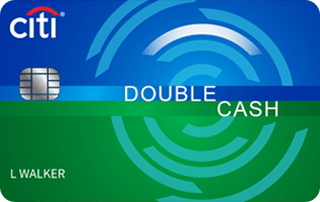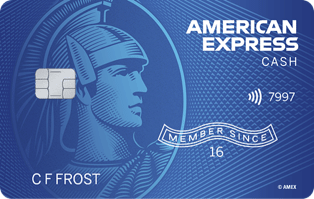- myFICO® Forums
- FICO Scoring and Other Credit Topics
- Understanding FICO® Scoring
- Re: We’re Tom Quinn & Tommy Lee - FICO Score Exper...
- Subscribe to RSS Feed
- Mark Topic as New
- Mark Topic as Read
- Float this Topic for Current User
- Bookmark
- Subscribe
- Mute
- Printer Friendly Page
We’re Tom Quinn & Tommy Lee - FICO Score Experts! Ask us anything.
Is your credit card giving you the perks you want?
Browse credit cards from a variety of issuers to see if there's a better card for you.
- Mark as New
- Bookmark
- Subscribe
- Mute
- Subscribe to RSS Feed
- Permalink
- Report Inappropriate Content
Re: We’re Tom Quinn & Tommy Lee - FICO Score Experts! Ask us anything.
Is it possible for someone to have a credit score so excellent that they'd be way above 850 (if the score range wasn't capped at 850) thereby making it possible for them to take a credit hit (inquiry, new account, etc) and still have an 850? Or is 850 only possible if you have a perfect, impeccable credit history and that anything bad at all will always result in a sub-850?
In other words, if 2 people both have 850's, is it possible for one of them to be just "barely" 850, teetering much closer to the edge of dropping into 849, than the other person who is "well into" 850 with plenty of wiggle room?














 Total SL: $78k
Total SL: $78kUnited 1K - 725,000 lifetime flight miles | Chase Status: 4/24
- Mark as New
- Bookmark
- Subscribe
- Mute
- Subscribe to RSS Feed
- Permalink
- Report Inappropriate Content
Re: We’re Tom Quinn & Tommy Lee - FICO Score Experts! Ask us anything.
Thanks for taking the time with us...
Understanding there's a ton of questions here with lots of inquiring minds...considering you are the experts...what questions would you have expected us to ask but haven't seen yet?
Are their tips you can give us that may not have been addressed in these questions that you yourselves can clarify as "it's good for you to know that..." or "Something most people don't know is...."
As consumers with your own profiles and scores, I am guessing there are things you both do in practice to maintain a profile/score that you're comfortable with. What would those items be?
Thank you...
- Mark as New
- Bookmark
- Subscribe
- Mute
- Subscribe to RSS Feed
- Permalink
- Report Inappropriate Content
Re: We’re Tom Quinn & Tommy Lee - FICO Score Experts! Ask us anything.
Hi.
My 2 questions are pertaining to hard pull inquires.
- If after 12 months there is no longer a hit to one’s credit score, then why does a inquiry stay on a credit report for 2 years and not 1?
- Can there not be two different inquires, one for applying for new credit and one for a credit limit increase? With different lengths and/or impacts on the credit score?
Thank you.
AoOA: 25yrs
- Mark as New
- Bookmark
- Subscribe
- Mute
- Subscribe to RSS Feed
- Permalink
- Report Inappropriate Content
Re: We’re Tom Quinn & Tommy Lee - FICO Score Experts! Ask us anything.
@Vegasr wrote:Hi.
My 2 questions are pertaining to hard pull inquires.
- If after 12 months there is no longer a hit to one’s credit score, then why does a inquiry stay on a credit report for 2 years and not 1?
- Can there not be two different inquires, one for applying for new credit and one for a credit limit increase? With different lengths and/or impacts on the credit score?
Thank you.
Referring to #2, Can there be a new inquiry coding for employment, bank accounts, etc that are not credit related
>8/2024 All 3 reports 835ish (F8) F9s = 850 but my app finger is still twitching
- Mark as New
- Bookmark
- Subscribe
- Mute
- Subscribe to RSS Feed
- Permalink
- Report Inappropriate Content
Re: We’re Tom Quinn & Tommy Lee - FICO Score Experts! Ask us anything.
In the case of an old (4-7 yrs) unpaid credit card charge off, what is the impact of either:
- Paying it off in full (one payment)
- Settling for less
- Making installment payments to pay it off
I've heard that it's not advisable to pay off an old charge off if you will be seeking a loan in the near term as it may actually have a negative impact on your score. I *think* this may be true for the 3rd scenario as I believe it may update the date to make it a brand new charge off or DOFL, is that correct? If so, does that mean that it would be counted as a more recent negative or that it would reset the clock to 7 years from the date of the first installment payment or both?
Would scenario 1 and 2 would be identical to each other in terms of impact and reporting? Basically, the balance owed should be updated to zero in both scenarios which would lower utilization and should theoretically improve the score especially if it was the cause of high utilization. Is that correct? Or, would the date of the CO and/or DOFL be updated so that the charge off would reset the clock for another 7 years and/or show as a more recent negative thus causing a negative or neutral overall impact to score?
I understand that specific impact is very much dependent on the whole picture, so if you aren't able to give a ballpark of impact, can you specify how the report will be updated for each of these scenarios?
Thanks in advance for your insights!
- Mark as New
- Bookmark
- Subscribe
- Mute
- Subscribe to RSS Feed
- Permalink
- Report Inappropriate Content
Re: We’re Tom Quinn & Tommy Lee - FICO Score Experts! Ask us anything.
A curious question
When designing new scores and formulas, whether public (like FICO 10/10T) or internal/private, did these forums ever influence them?
- Mark as New
- Bookmark
- Subscribe
- Mute
- Subscribe to RSS Feed
- Permalink
- Report Inappropriate Content
Re: We’re Tom Quinn & Tommy Lee - FICO Score Experts! Ask us anything.
Why does a mortgage only count towards "credit mix" when it's not paid off? For example, people will often get a substantial score drop and multiple Reason Codes citing the lack of an open mortgage, as early as the very next month after the mortgage was paid off. It seems counterintuitive - someone who has recently demonstrated that they can pay off a mortgage in full should, I would think, pose less of a credit risk than someone who still owes money to a mortgage.
Followup question, is it a requirement to have an open mortgage to get an 850 score, or is it nearly impossible to get 850 without one?














 Total SL: $78k
Total SL: $78kUnited 1K - 725,000 lifetime flight miles | Chase Status: 4/24
- Mark as New
- Bookmark
- Subscribe
- Mute
- Subscribe to RSS Feed
- Permalink
- Report Inappropriate Content
Re: We’re Tom Quinn & Tommy Lee - FICO Score Experts! Ask us anything.
Did analytics provide any input for the various ratings we see on a myFICO 3B report under Ingredients?
Many people believe these are just 'fluff' and don't have any real meaning and/or they are just estimates made by some front-end developer.

Amount of Debt, Credit History Length, Amount of New Credit, and Credit Mix are also listed with associated ratings of POOR, FAIR, GOOD, VERY GOOD, or EXCEPTIONAL.
- Mark as New
- Bookmark
- Subscribe
- Mute
- Subscribe to RSS Feed
- Permalink
- Report Inappropriate Content
Re: We’re Tom Quinn & Tommy Lee - FICO Score Experts! Ask us anything.
What's the deal with the resiliency score? What is that based on?


- Mark as New
- Bookmark
- Subscribe
- Mute
- Subscribe to RSS Feed
- Permalink
- Report Inappropriate Content
Re: We’re Tom Quinn & Tommy Lee - FICO Score Experts! Ask us anything.
In version 8, there is a scoring penalty when all cards on which a consumer is an authorized user report zero balance. Is that intentional or a bug?
Do you have the ability to fix bugs after a scoring model (e.g. FICO8) is released, or are you (and we, and lenders) stuck with it until you release and lenders adopt a new scoring model (FICO9 or 10)?